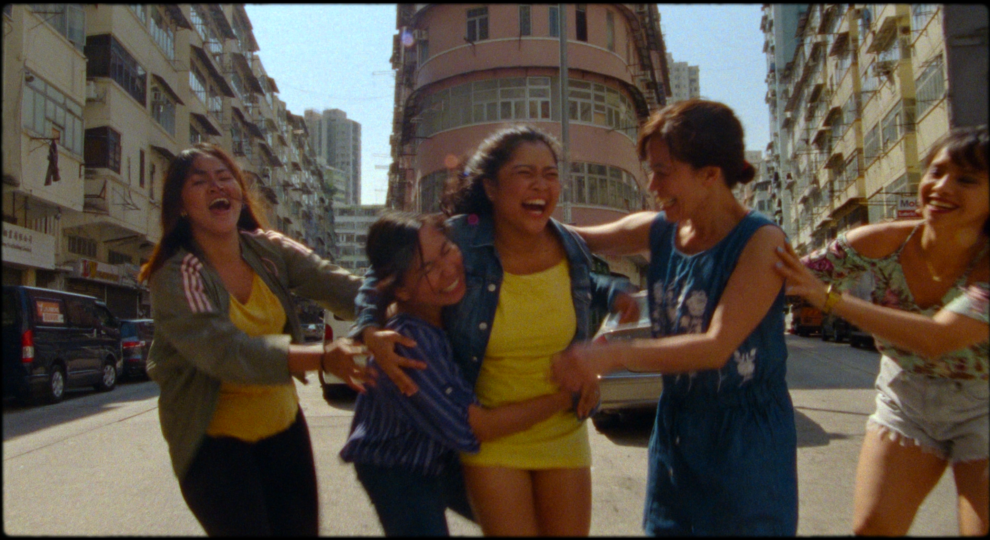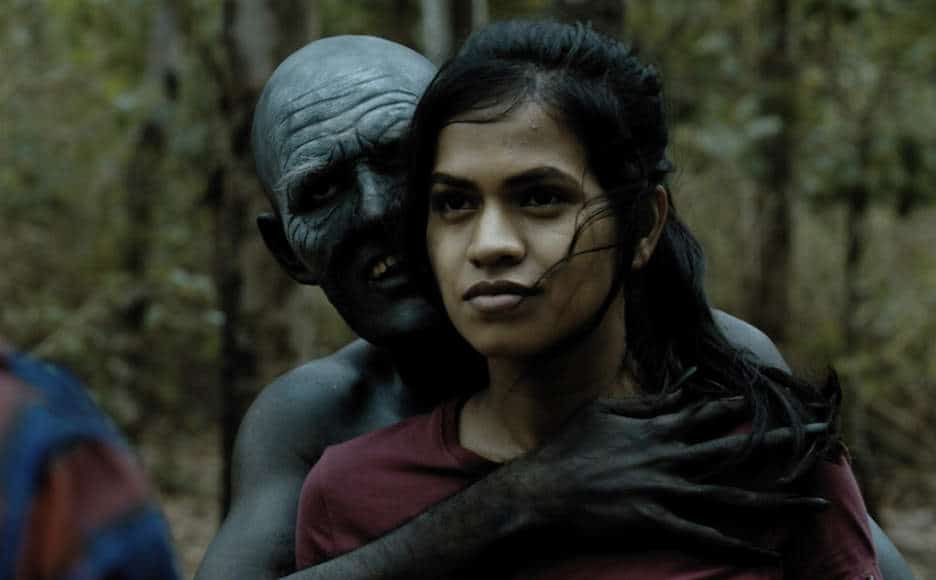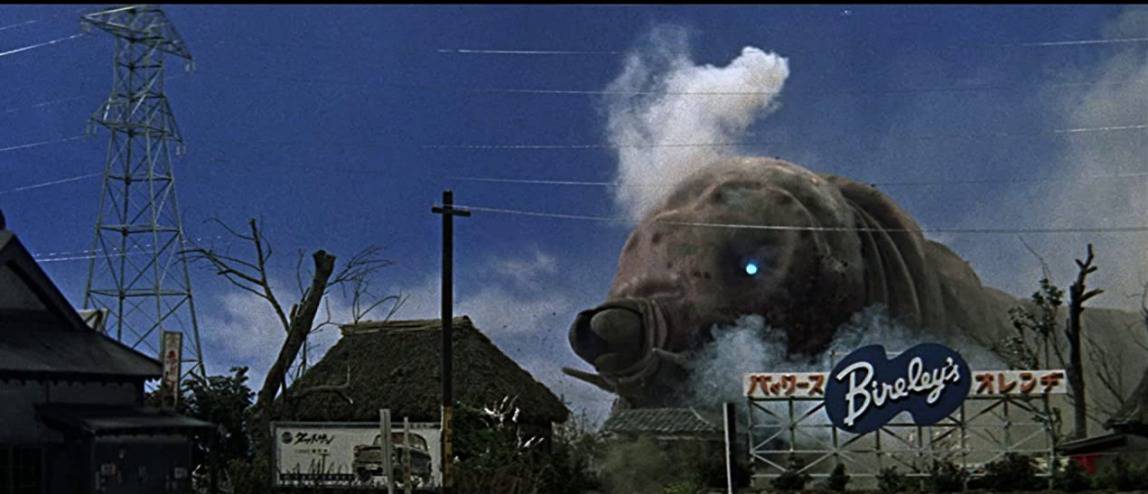The Hong Kong protests have been front and center of the city's films of recent years, save for one — “We Don't Dance for Nothing.” This feature started making its rounds with its May premiere, and has recently played online at the 45th Asian American Film Festival. Its origins are just as multinational too – the production took place across the US, Canada, Hong Kong, and the Philippines, all under the eye of first-time Chinese-Greek-American filmmaker Stefanos Tai. He uses the protests as a mere backdrop the city's 400,000 Filipino domestic workers. While calls for democracy rages on in the streets, domestic workers like the fictional H (Miles Sible) remain locked up at home. A complex emotional compound of endearment and estrangement bubbles up within the home — tempting some domestic workers, like the film's fictional H (Miles Sible), to ultimately escape.
“We Don't Dance for Nothing” played at the 45th Asian American International Film Festival
In this vein, H seems deeply unhappy. She's an unmarried 26-year-old Filipina who works as an all-in-one live-in maid, nanny, and chef for a well-off Chinese family. She cleans the house; takes care of two rowdy children; assists the pregnant mother when possible. She dreams, however, of possessing her own freedom. On H's one free day of the week, she meets, dances, and plots her escape with her friends and newfound lover. There's only one hitch, however. Everyone around her is beholden to other responsibilities. Some cite family in the Philippines; others point to legal residential papers; and still others boast of a real affection for their host families. Regardless, it seems that – despite all the weekly talk – no one seems to want to walk the walk. H must then decide: Should she go alone, or should she choose to stay?
Though the tale is told in retrospect, H's final decision remains up in the air until the very end. Tai reflects her hesitancy by portraying the majority of H's memory in a snapshot-like photo-montage. He splices live-action footage is spliced into individual frames, and – even for the MTV-esque dance sequences – he slows them down considerably to emulate a more jerky framerate. This is a bold move, especially for a feature debut. On one hand, this seems like a clear tribute to Chris Marker's own “La Jetee,” which had also capitalized upon dramatic voiceovers set to a series of photographs.
Unlike “La Jetee”, however – which only runs 28 minutes long – the near 90-minute long photo montage of “We Don't Dance for Nothing” feels excruciating. Other than the indication towards memory-making, it is unclear why the “movie” uses stills and lower-frame rates than the standard 24fps. There is too little cushion between the stills; little seems lost within this temporal sieve. Instead of achieving a precious slowness or the ephemeral nature endemic to the moving image (as other caretaker dramas like Ann Hui's “A Simple Life” or Martin Edralin's “Islands” do), “We Don't Dance for Nothing” simply seems to jerk back and forth. As a result, the film reads more like a crude animatic or a storyboard instead of an more artful photo montage, distracting rather than absorbing the viewer into its heartfelt recollection.
Perhaps the film's real failing here is, however, its lack of attention towards sound design. Tai relies heavily on Miles Sibles — who does indeed do a fantastic job at voice acting — but struggles to carry the film alone. Conversations and ambient sounds feel as though they have simply been picked up by a rolling camera, rather than delicately parsed and put together in post. More attention, it seems, had been dedicated to visual composition and camerawork – both of which could not be fully appreciated because of the mixed frame rate.
All in all, however, “We Don't Dance for Nothing” is not all for naught. Its tagline is compelling, and the latter half of the film does draw sympathy. Its nuanced display of H (and again, with Sibles' acting!!) delves into the messy mix of emotions any domestic worker in her shoes may face. Formally, it just takes a long time for one to settle into her groove — but once one does, “We Don't Dance for Nothing” plays out to be a sentimental tribute at the end of the day. Tai's directorial choice won't go unnoticed, but will take more time to refine.
“We Don't Dance for Nothing” played at the 45th Asian American International Film Festival this year.
















